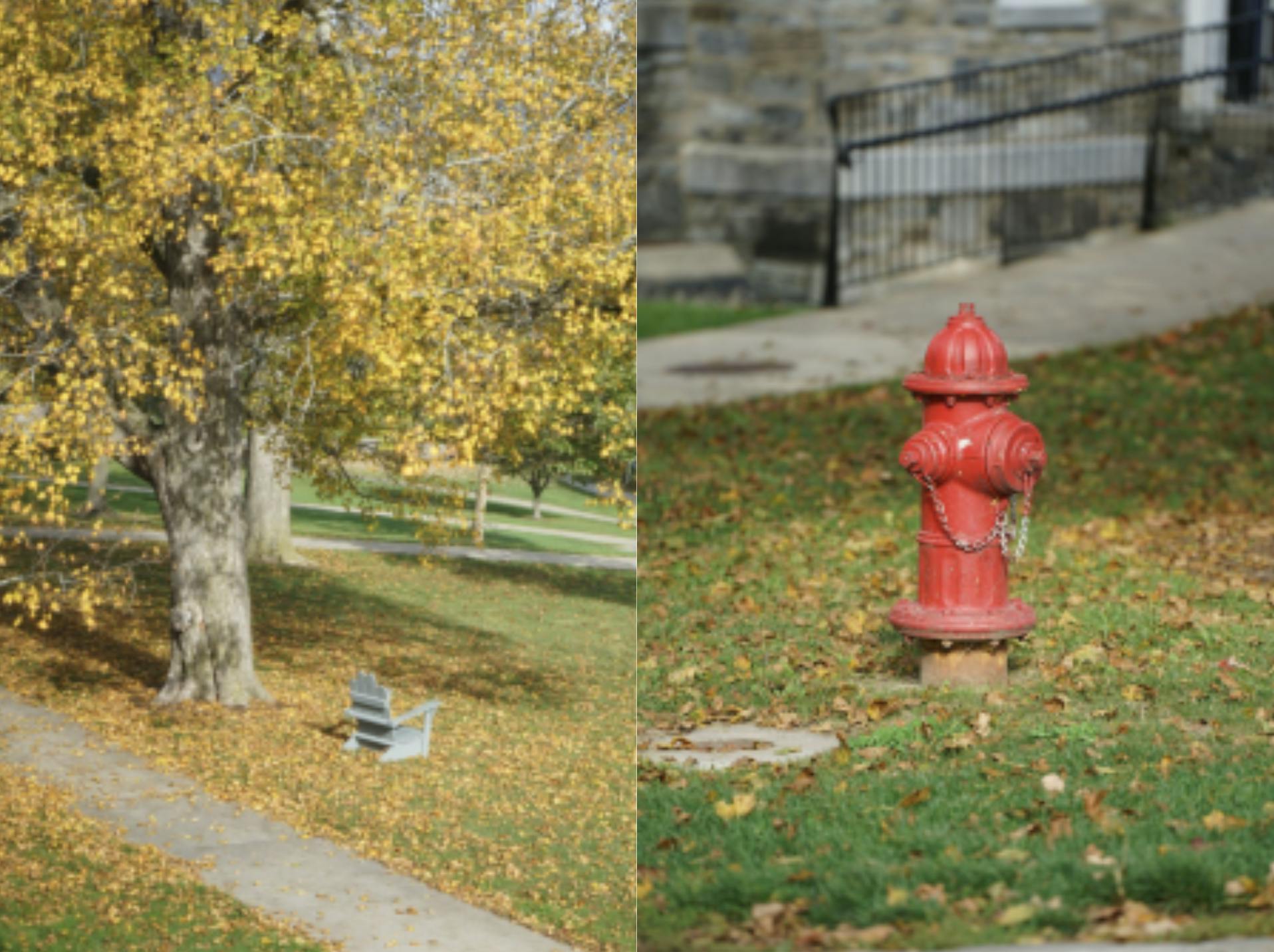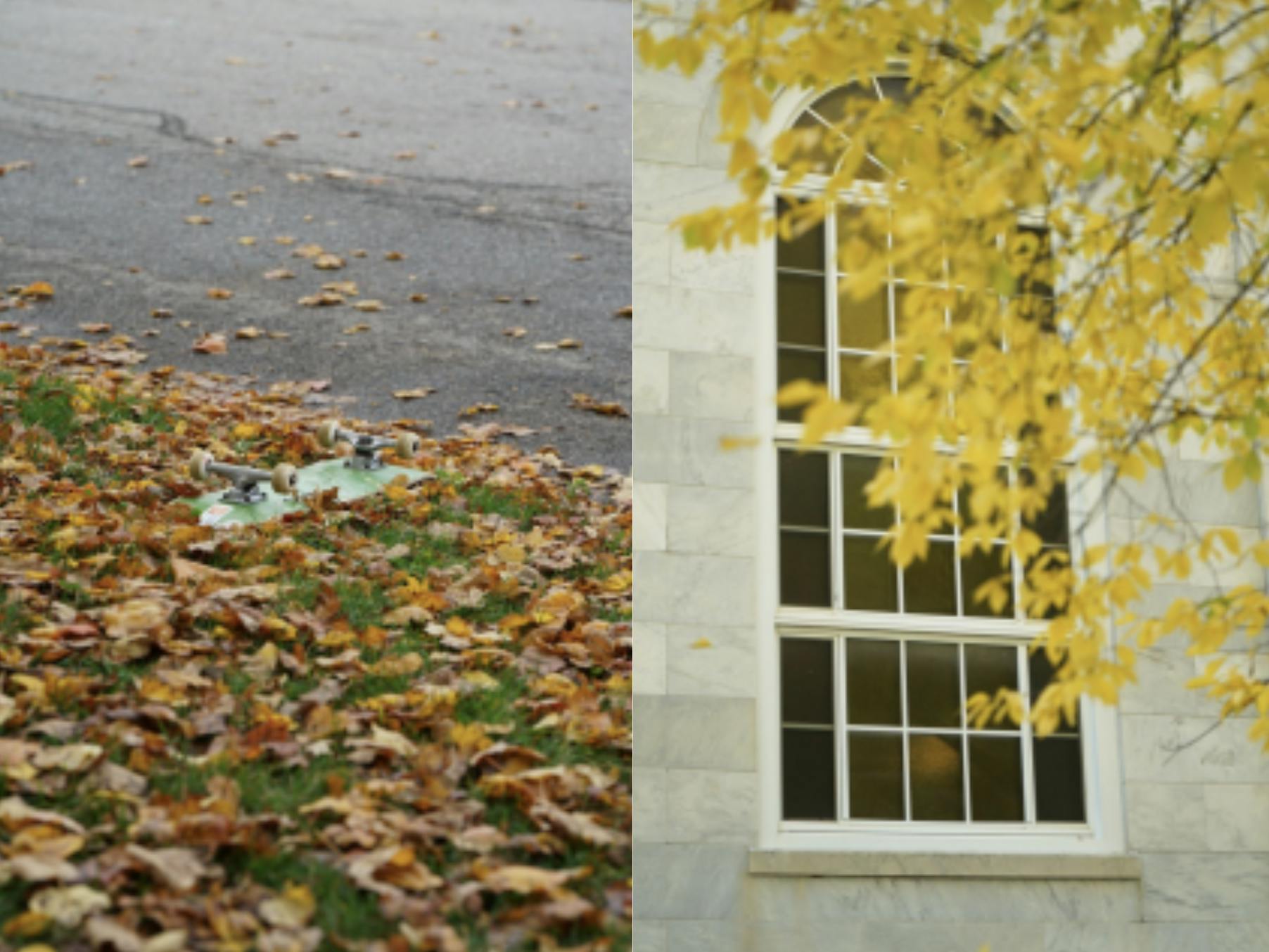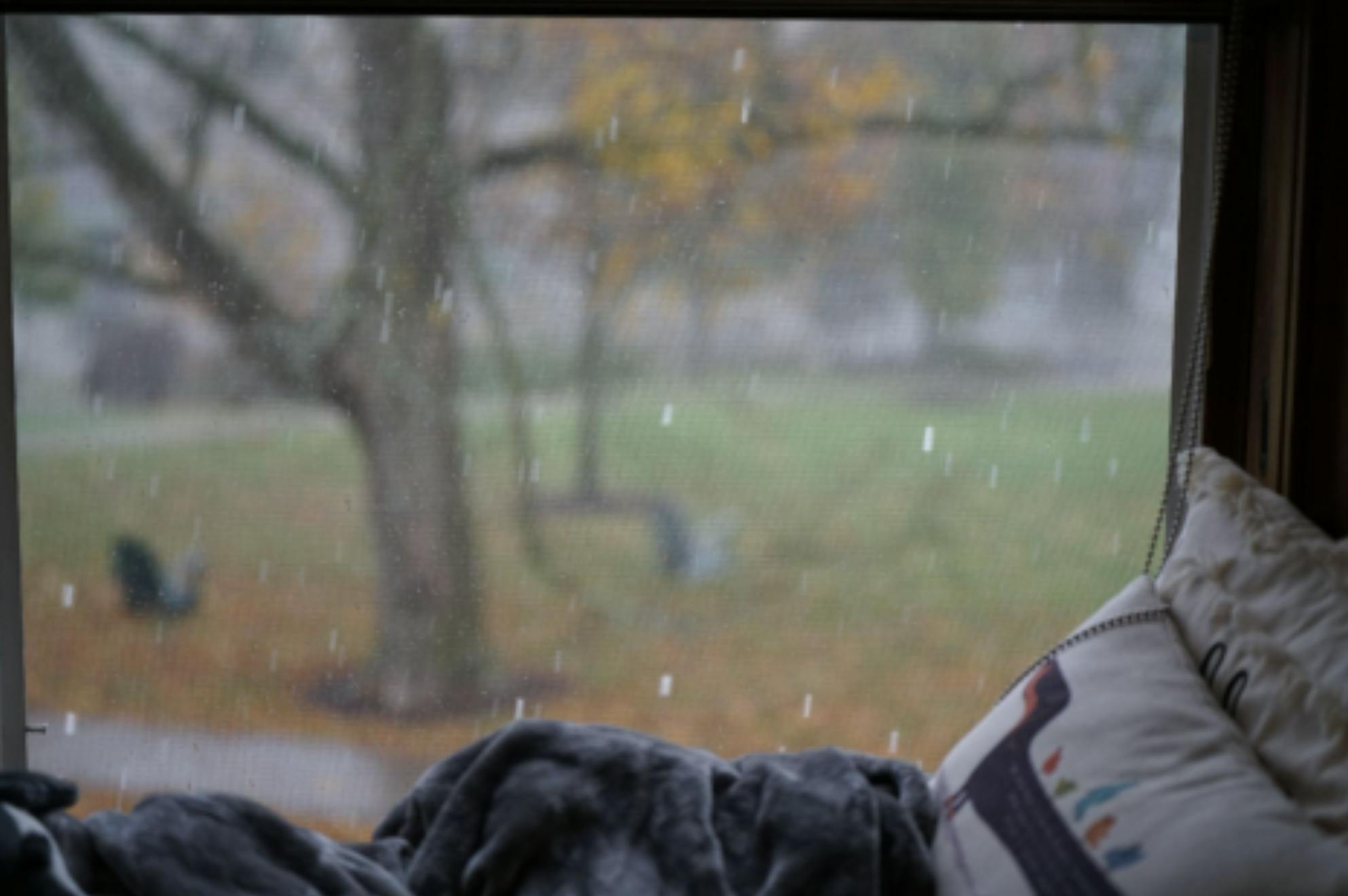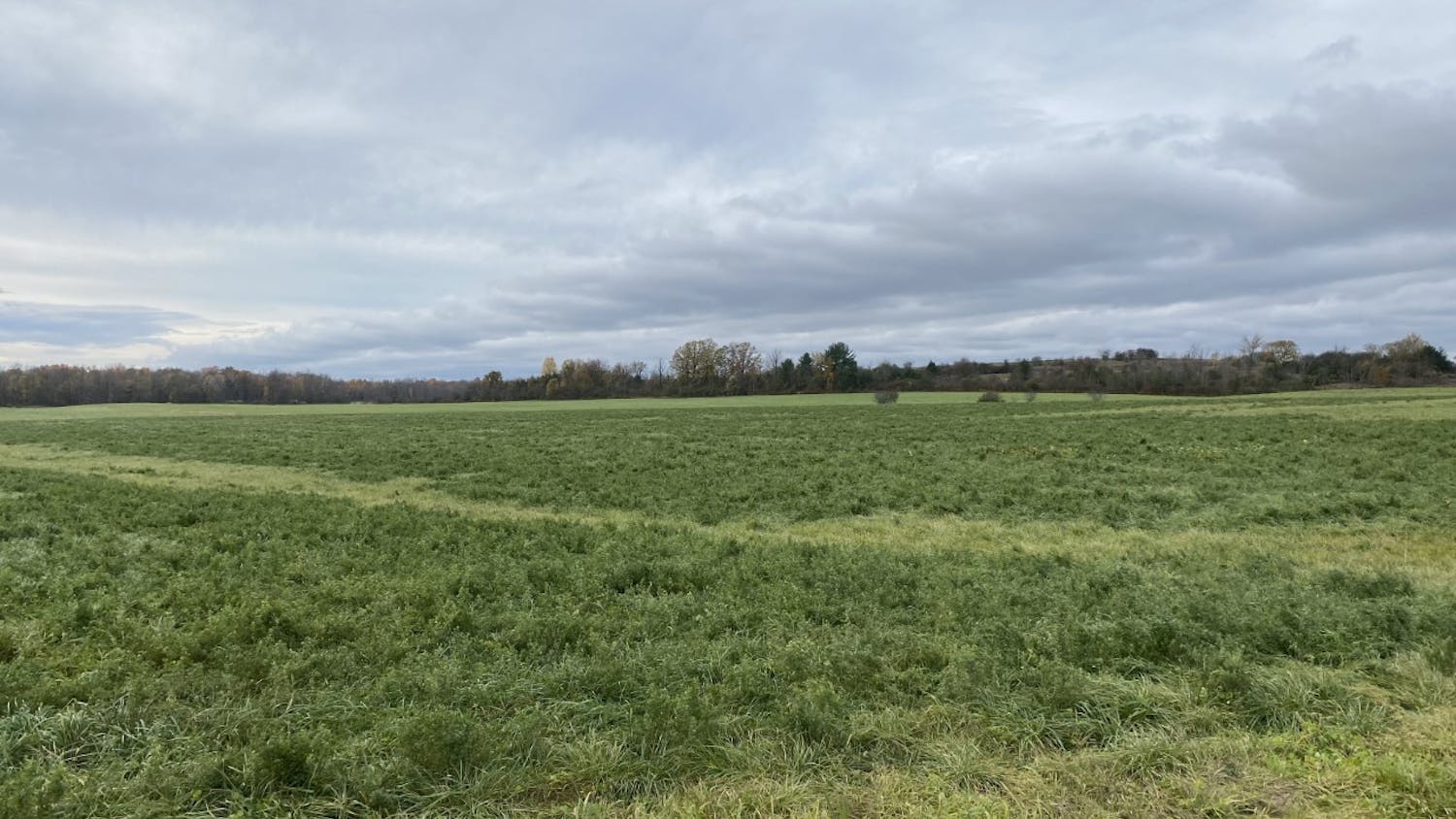The idea came to me while watching a snowboarding movie called “Offline” which started with a neon-coloured, 3D, spinning sign that said: “The Internet Never Sleeps.” In the background was a dizzying collage of memes, likes, emojis and phones. The introduction nauseated me so much that I decided to go offline for some time.
It started out as just being offline to appreciate the New England autumn for my last year at Middlebury College. As I pressed "Shut Down," the various windows — Chrome, Drive, Outlook, Google Calendar, Facebook, Photoshop — closed themselves one by one, until I was left with a black screen of my own reflection. I could not remember the last time I voluntarily shut down my phone and laptop. After my screens went black, I looked at my alarm clock and thought, “Hell, why not get rid of this as well.”
Being able to do whatever I wanted whenever I wanted appealed to me greatly. It was a taste of the absolute freedom I've always longed for.

As it turns out, of the three things I took away, the absence of the clock made the most difference.
After the sky went dark, the notion of time and hours completely eluded me. I had to operate on my biological clock instead. Am I feeling tired? Am I thirsty? Do I need to do yoga before bed? I read a chapter of Reading the Mountains of Home by John Elder, which talked about how “all this now [is] too much for us,” and how we are unconsciously burdened by the race to be overworked, overstimulated, overindulged in contemporary society. Instead of sticking to my usual 12:30 a.m. to 8:00 a.m. sleep schedule, I decided to go to bed after my second yawn.
Without knowing the time, I could not live on the exact schedule that I was used to: a cup of black coffee before noon, an hour of climbing, five minutes of stretching before bed… all these habits fused together as my impulse took over… I slept when I was tired, read when I grew bored, meditated until my mind became distracted. This taught me a completely new approach to mediation: instead of following a five-minute guided podcast, I sat down when I felt like it and meditated until I was content.

I found myself almost obsessively trying to (unsuccessfully) figure out the hour. I tried to guess based on the brightness of the sky and the position of the sun. Whether the library was open, which can be seen from my window, also became an important clue.

Without my phone, I had no alarm or to-do list waiting for me in the morning. While I was aware of the lurking assignments due after break, they suddenly all seemed irrelevant without a clock. I went to Proctor when I felt hungry, hoping that it would be open. I brought my camera and took my time walking up the hill, noticing the leaves and the fresh cool air. When I bumped into friends, I did not feel the usual obligation to schedule a catch-up.
“I’m sorry. I’m not using my phone right now, but I'm sure we will bump into each other,” I told them.
It was delightful because with no expectations or plans, it was very easy to be surprised. I was stoked when my friends showed up to skate as soon as I put down my skateboard.

In the afternoon, a storm gathered. I later found out that there had actually been a severe thunderstorm warning. The sky darkened so much that I gave up on trying to guess the time. Retreating back to my room, I re-read past letters from friends and family, and wrote new ones to be sent off.

Sometimes, I instinctively looked up from my book to check the time, only to find the empty space where the clock once was staring back at me, mockingly. There was another moment while reading when my peripheral vision caught the hint of a black rectangle. I reached for it to check my notifications, only to grab the corner of my sweatshirt.
In the end, I had to return to technology after the weekend, to prepare for the next wave of assignments. As much as I enjoyed the time off of the clock, the lifestyle is not sustainable for me to get where I want to be in the future. The difference is that now, the option to go offline for 24 or 48 hours is always there. Among the rush of senior year research papers and job applications, I can imagine myself returning to the escape – a reality check and a realignment from time to time.

Florence Wu '22 is the multimedia editor specializing in photojournalism. She enjoys photography as a way of connecting with others, as well as recording special events and moments in her personal life. She is inspired by the works of Robert Frank, Joel Sternfeld, Alec Soth, Teju Cole, and Gregory Halpern. This year, she will be working on a photojournalism project on the lives of workers at the college and town of Middlebury. Feel free to contact her via email for photo, video or podcast ideas.



